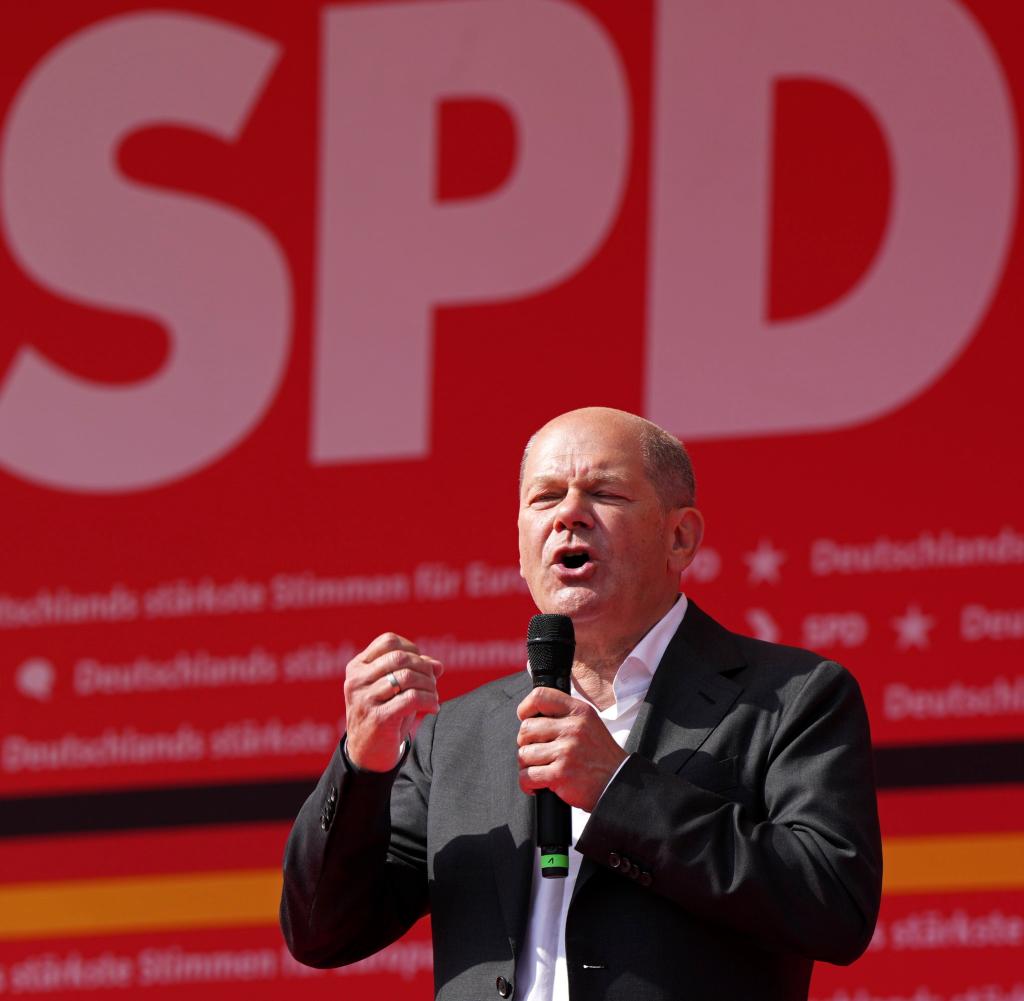In Thuringia and Saxony, where new state parliaments will be elected at the beginning of September, the Social Democrats are very nervous within the party. Georg Maier, Interior Minister in Thuringia and head of the state SPD, is calling on Chancellor Olaf Scholz and the party leadership to respond to the needs of the people in East Germany. “Why, damn it, don’t we finally focus on East German issues?” Maier told “Spiegel” and demanded: “The Chancellor must now reach out to the East Germans.”
Saxony’s SPD top candidate Petra Köpping expects Scholz to explain himself and his policies better. So far, he has agreed to two campaign events in Saxony. “I would like him to come more often,” Köpping told the news magazine.
The desire for a more understandable line from the Chancellor is also great among the SPD in North Rhine-Westphalia. “I expect the promised leadership and more intensive, better communication from Olaf Scholz,” the media quotes Duisburg Mayor Sören Link (SPD) as saying. Sarah Philipp, chairwoman of the NRW SPD, accuses the party leadership of an unclear course: “Especially on the election-deciding issues of asylum and migration policy as well as internal security, the SPD’s profile has not always been clear in recent years. We can no longer shy away from internal party conflicts on these issues at the expense of an unclear position,” she said.
The growing discontent within the SPD over Scholz’s handling of the party’s weak result of only 13.9 percent in the European elections was also evident in the confidential meeting of the Bundestag faction on Tuesday. There, Berlin’s former Governing Mayor Michael Müller criticized Scholz for not wanting to comment on the election result to journalists on election night.
Scholz could not answer “No” when asked whether he wanted to comment on the result, said Müller, according to participants in the meeting. Müller, who is responsible for foreign policy, also accused Scholz of making contradictory statements at the end of the election campaign: You cannot run a peace election campaign and at the same time allow Ukraine to attack targets in Russia with German weapons.
According to its chairman Rolf Mützenich, the SPD parliamentary group in the Bundestag also wants the Chancellor to be more aware of social democratic interests. Mützenich told the “Rheinische Post” newspaper, referring to the parliamentary group meeting on Tuesday and almost 40 statements after the disastrous European election results, that all contributions had shown that they not only value the Chancellor’s work, but also support it in terms of content. “And at the same time, they expressed concerns about the coalition’s public image. And they emphasized their desire for the Chancellor to become more visible with his convictions, including in the government,” Mützenich added.
“In the future, the Chancellor will seize the opportunity to explain his position within the coalition more clearly as the Social Democratic head of government,” the parliamentary group leader continued. “We are approaching the end of the legislative period. Now is the time to highlight previous successes and future plans more clearly,” said Mützenich.
He also assured the Chancellor of his personal support. “As SPD parliamentary group leader, I will always give an SPD Chancellor the leeway he needs for his policies. This applies as long as it is possible for me in my office and does not violate my convictions.”




